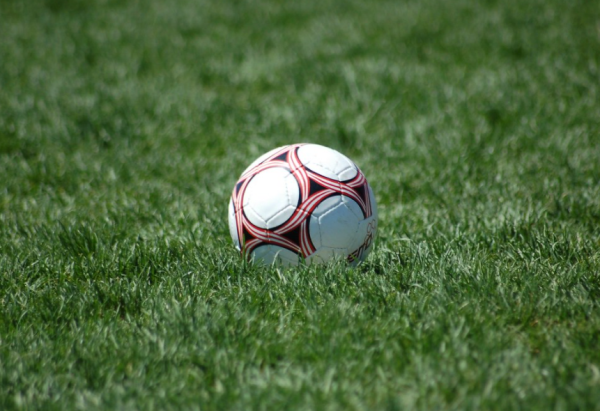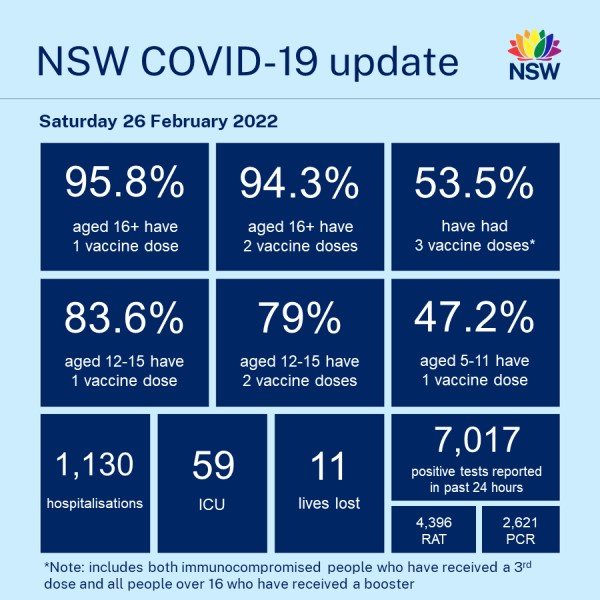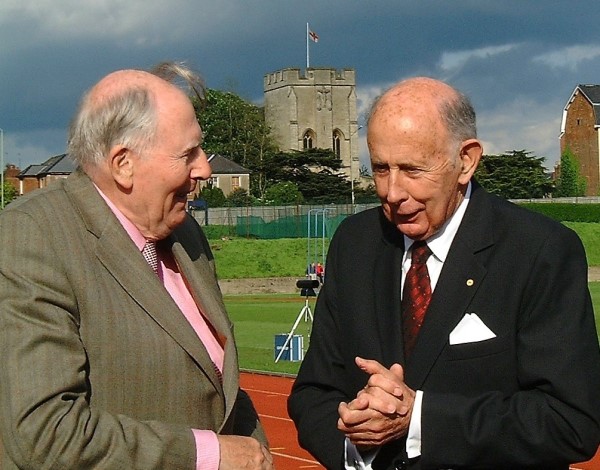Selected
- Details
- Written by Grant Broadcasters
- Category: Selected
- Hits: 153

The play-off matches are set to be held in March to fill a slot for the 2022 World Cup in Qatar, and several Poland players including captain Robert Lewandowski backed the decision on Saturday with statements on social media.
"In light of the escalation of the Russian Federation's aggression against Ukraine, the Polish national team is not going to play a match against Russian Republic," Poland's Football Association chief Cezary Kulesza wrote on Twitter.
Russia are scheduled to host Poland in the semi-finals of the World Cup play-offs on March 24 and, if the team advances, will host either Sweden or the Czech Republic on March 29 in the Path B final.
The Swedish FA later said that its team wouldn't play the Russians regardless of where the match is played.
"The illegal and deeply unjust invasion of Ukraine currently makes all football exchanges with Russia impossible," Swedish Football Association chairman Karl-Erik Nilsson said.
Earlier, Polish national team players took to social media to express their support for the move.
"It is not an easy decision, but there are more important things in life than football," Kamil Glik, Mateusz Klich, Matty Cash and others wrote on Twitter.
"Our thoughts are with the Ukrainian nation and our friend from the national team, Tomasz Kedziora, who is still in Kiev with his family."
National team captain Lewandowski tweeted: "I can't imagine playing a match with the Russian National Team in a situation when armed aggression in Ukraine continues."
"Russian footballers and fans are not responsible for this, but we can't pretend that nothing is happening."
Poland goalkeeper Wojciech Szczesny, whose wife was born in Ukraine, didn't mince his words on Instagram.
"I refuse to play against players who choose to represent the values and principles of Russia," he said.
"I refuse to take part in a sporting event that legitimates the actions of the Russian government."
Meanwhile, the Norwegian Ski Federation says it does not want Russian athletes competing at upcoming World Cup races and world championships in Norway.
"Russia's violations of international law and attacks on the Ukrainian people demand international condemnation and sanctions," Norway's federation said in a statement.
"The Norwegian Ski Federation's message to Russia and Russian athletes is crystal clear - we do not want your participation."
Ukraine's former world boxing heavyweight champion Wladimir Klitschko has appealed to the world to stop the conflict and prevent a humanitarian catastrophe.
Wladimir and his brother Vitali, also a former world heavyweight champion and now mayor of Kiev, have vowed to take up arms against invading Russian forces.
"I'm addressing the entire world to stop this war that Russia has started," Klitschko said in a video posted online.
"There's no time to wait because it's going to lead into a humanitarian catastrophe. You need to act now to stop Russian aggression with anything you can have now. In an hour, or by tomorrow it's going to be too late."
Wladimir enlisted in Ukraine's reserve army earlier this month, saying at the time that his love for his country compelled him to defend it.
© RAW 2022
Image: Glenn Harper/Flickr
- Details
- Written by Grant Broadcasters
- Category: Selected
- Hits: 132

A defiant President Volodymyr Zelenskiy says Kyiv remains under Ukrainian control as Russian forces renewed their assault, pounding the capital and other cities with artillery and cruise missiles.
A US defence official said Ukraine's forces were putting up "very determined resistance" to the three-pronged Russian advance that has sent hundreds of thousands of Ukrainians fleeing westwards, clogging major highways and railway lines.
"We have withstood and are successfully repelling enemy attacks. The fighting goes on," Zelenskiy said in a video message from the streets of Kyiv posted on his social media.
But he is also welcomed efforts to open talks with Russia.
In the video, Zelenskiy said that Turkish President Recep Tayyip Erdogan and Azerbaijani President Ilham Aliyev had offered to help organise talks and that "we can only welcome that".
Diplomatic efforts to end the bloodshed have so far faltered.
Zelenskiy offered on Friday to negotiate a key Russian demand: that Ukraine declare itself neutral and abandon its ambition of joining the NATO military alliance.
But movement to actually advance any diplomacy has appeared to sputter.
Russian President Vladimir Putin launched what he called a special military operation before dawn on Thursday, ignoring warnings from the US and its allies and saying the "neo-Nazis" ruling Ukraine threatened Russia's security.
The Kremlin said its troops were advancing again after Putin ordered a pause on Friday for anticipated talks that never happened.
An adviser to Zelenskiy denied that Ukraine had refused negotiations but said Russia had attached unacceptable conditions.
He also said it was untrue that Russia had paused troop movements.
The crisis has galvanised NATO, which has announced a series of moves to reinforce its eastern flank.
While NATO has said it will not deploy troops to Ukraine, a string of countries are sending military aid.
US President Joe Biden approved the release of up to $US350 million ($A484 million) worth of weapons from US stocks, while Germany - in a shift from its long-standing policy of not exporting weapons to war zones - said it would send anti-tank weapons and surface-to-air missiles.
The United States has observed more than 250 launches of Russian missiles, mostly short-range, at Ukrainian targets, the US defence official said.
"We know that (Russian forces) have not made the progress that they wanted to make, particularly in the north. They have been frustrated by what they have seen is a very determined resistance," the official said, without providing evidence.
Chechen leader Ramzan Kadyrov, a close Putin ally, said on Saturday his fighters were also deployed in Ukraine.
He said Russian forces could easily take Kyiv and other large cities but their task was to avoid loss of life.
Kyiv's mayor Vitali Klitschko said there was no major Russian military presence in the capital but that saboteur groups were active.
Klitschko, a former world heavyweight boxing champion, said 35 people including two children had been wounded overnight and that he was imposing a curfew from Saturday evening until Monday morning.
Ukrainians faced lengthy queues for money at cash machines and for fuel at petrol stations, where individual sales are mostly limited to 20 litres.
Many shops in the city centre were closed and the streets were largely empty on Saturday afternoon.
"I was smart enough to stock up food for at least a month," said Serhiy, out for a walk before the curfew.
"I did not trust the politicians that this would end peacefully."
At least 198 Ukrainians, including three children, have been killed and 1115 people wounded so far in Russia's invasion, Interfax quoted Ukraine's Health Ministry as saying.
It was unclear whether the numbers comprised only civilian casualties.
Interfax later cited the regional administration in Donetsk, eastern Ukraine, saying 17 civilians had been killed and 73 wounded by Russian shelling.
Russia says it is taking care not to hit civilian sites.
A Ukrainian presidential adviser said about 3500 Russian soldiers had been killed or wounded.
Russia's Defence Ministry said its forces had captured Melitopol, a city of 150,000.
Ukrainian officials did not comment and the UK cast doubt on the report.
If confirmed, it would be the first significant population centre the Russians have seized.
The city of Mariupol, a key port on the Sea of Azov in southeast Ukraine, remained under relentless shelling on Saturday, its mayor Vadim Boychenko said in a televised address.
"They are shelling schools, apartment blocks," he said.
About 100,000 people have crossed into Poland from Ukraine since Thursday, including 9000 who have entered since 7am on Saturday, Polish Deputy Interior Minister Pawel Szefernaker said.
Ukrainians were also crossing the borders into Hungary, Romania and Slovakia.
The US and European Union have also announced new sanctions on Russia, including blacklisting its banks and banning technology exports.
They have stopped short of forcing Russia out of the SWIFT system for international bank payments, although Germany's foreign and economy ministers and a French presidential official indicated on Saturday that such a move may come soon.
Several European countries, including Russia's Baltic neighbours Lithuania and Latvia, said they were closing their airspace to Russian airliners.
In one of the first visible signs of sanctions being enforced over the invasion, France seized a car cargo ship in the Channel on Saturday that has been linked to the son of a former Russian spy chief.
with reporting from AP
© DPA 2022
Image: Ministry of Defense of Ukraine/Flickr
- Details
- Written by NSW News
- Category: Selected
- Hits: 120


- Details
- Written by Grant Broadcasters
- Category: Selected
- Hits: 124

John Landy, one of Australia's great sportsmen, has died at the age of 91 after a life full of achievement both on and off the athletics track.
The middle distance legend, who was the second man to break the four-minute mile barrier, passed away at his home in Castlemaine, Victoria, on Thursday surrounded by his family after a long battle with Parkinson's .
Landy, a figure of huge integrity and class, was responsible for the finest and most selfless Australian sporting moment of the 20th century - even if it didn't sit easily with him.
By his own admission, he would have preferred to be remembered as simply a good runner.
Or for becoming the 26th Governor of Victoria, an office he discharged with the same dignity and good sense that characterised his life, or for his work on the Australian Sports Commission, or his writings on nature.
Or perhaps even for creating one of his country's finest butterfly collections.
John Michael Landy may have been one of the greatest middle-distance runners of his era but he was much more - a capable scientist, an author, a humanitarian, a husband and a father.
But it was for his athletic prowess, a talent developed as a boy chasing butterflies through paddocks around Melbourne, that Landy first came to prominence.
He initially took up competitive running to help him get fit for football, only becoming serious about it after making the Victorian athletics team in 1951.
Within 12 months he was on the Australian team for the Helsinki Olympic Games, and a couple of years later became deeply engaged in a battle with Englishman Roger Bannister to become the first man to achieve a feat thought to be beyond human capability - to run a mile in under four minutes.
As Landy and Bannister rolled on toward the magical mark, their ambition became one of the most eagerly anticipated events in the history of track and field.
In the end it was Bannister who won that "race" stopping the clock in a state of near collapse at 3 minutes 59.4 seconds at Oxford on May 6, 1954.
Less than two months later in Finland, Landy, who had threatened the mark several times that year, breezed past Bannister's world record, running 3:57.90.
Those two, sub-four-minute runs preceded the 1954 Empire Games in Vancouver where Landy and Bannister, the world's two fastest milers, met face-to-face in a showdown billed as the Race of the Century
The Englishman won, outrunning and outfoxing Landy who, at a vital stage, looked for him over his left shoulder as Bannister made his move on the right.
Bannister retired from running in 1955 to concentrate on what became a celebrated career as a neurologist, later writing about Landy in Sports Illustrated, describing the Australian as "an athlete faster, neater and more generous than any other."
Landy, meanwhile, pushed on to the 1956 Melbourne Olympic Games where he was the favourite to win the "metric mile", the 1500m.
It was in the lead-up to those Games that Landy earned his almost mythical place in Australian sporting folklore.
Running in the Australian Mile Championship in 1956 Landy was in a winning position when fellow athlete Ron Clarke tripped and fell in front of him with about a lap and a half to go.
Landy leapt over Clarke and then turned back to help his rival to his feet, a gesture that cost him valuable seconds and around 50 metres.
After checking on Clarke, he got going again, circled the field and won a race that assured him a place in the Australian Olympic team.
In time, Landy came to view it less gloriously than most, describing it as "that silly race when I whizzed back to Ron Clarke".
"I reacted on the spur of the moment. I ran down his arm with my spikes when I was jumping over him. That's why I went back.
"A lot of people seemed to think it was the most significant thing I ever did in running.
"It wasn't."
Nevertheless, a statue depicting the incident was erected 50 years later outside Melbourne's Olympic Park and, in 1999, the Sport Australia Hall of Fame declared Landy responsible for the nation's Finest Sporting Moment of the Century.
Landy duly ran at the 1956 Melbourne Games, finishing third behind the Irishman Ron Delany.
It was to be the last shot Landy would have at a major international title.
Landy went on to work in the field of agricultural science, a subject he studied at Melbourne University, and held various positions in sporting and community organisations.
In 2001 he became the Queen's man in Victoria, serving for five years with typical generosity and openness.
The same qualities, perhaps, led Landy to donate his butterflies, some 10,000 of them, personally collected and catalogued, and estimated to be worth at least $1 million, to the Australian National Museum in 2017.
Landy leaves his wife Lynne and children Matthew and Alison.
© AAP 2022
Image: GooglerW, CC BY-SA 4.0 <https://creativecommons.org/licenses/by-sa/4.0>, via Wikimedia Commons
Page 79 of 191